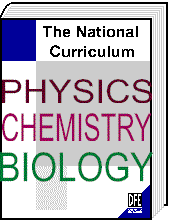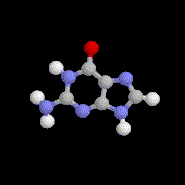![]()
CURRICULUM
KS3 SCIENCE
YEARS
7 AND 8
The
main aims of the first and second year science courses are to develop an
awareness of what science is and how scientists approach problems, while
studying a core of basic areas of the subject.
We do not study the three traditional disciplines as such but
rather study different topics encountering Chemistry, Biology and
Physics intertwined.
While
there is, obviously, an essential body of course content, we encourage
the development of skills such as practical ability, the ability to
hypothesise, extrapolate, investigate, deduce and interpret. These skills will be useful in later life whether the student
is bound for the sciences or the arts, whereas ‘facts’ and
‘laws’ can change.
2.2.
Looking at Living Things
3.
Energy
4.
A Model of Matter
5.
Solvents and Solutions
6.
Cells and Reproduction
7.
Electricity
8.
Some
Common Sense
The
Science Now books follow a similar pattern.
9.
Heat Flow
10.
Hydrogen, Acids and Alkalis
11.
Detecting the Environment
12.
The Earth
13.
Forces and Movement
14.
Transport Systems (in Plants and Animals)
15.
Electrical Energy
Practical
Assessment and topic tests based on the present National Curriculum are
used throughout the courses.
YEAR
9
In
the third year the students study Biology, Chemistry and Physics as
three separate sciences, having two periods a week in each. The broad aims are to give the students a clear idea of each
subject, a sound understanding of the basic principles and a lively
interest in them, while showing their relevance to the real world beyond
the laboratory door.
The
sections below list the basic course content but should not be seen as a
rigid scheme but rather as a framework within which a degree of
flexibility is usual, since all groups differ in their needs and
interests.
Ecology:
·
Climatic,
edaphic and biotic factors
·
Study
of soils
·
Population
growth
·
Pyramids
of numbers and biomass
·
Succession
·
Pollution
·
Food
chains and webs
·
Photosynthesis
and the conditions for it
·
Chlorophyll
(extraction and chromatographic separation)
·
Photosynthesis
experiments and general equation
·
Photosynthesis
and its importance to all earth life
·
Leaf
structure
·
In
general: special attention
to the honey bee as a social insect
·
Elements,
mixtures and compounds
·
Separating
mixtures
·
Fuels
·
Air
·
Water
·
Pollution
·
Metals
·
Atomic
Structure
The
use of chemical formulae and equations are introduced and then developed
through the course as a whole.
·
Forces
·
Basic
Structure
·
Electricity
and Simple Electronics
·
Density
·
Light
·
Kinetic
Theory
·
Pressure
Earth and Universe
Towards
the end of the year the students may study such things as the structure
of the universe with some astrophysics, recent technology, how household
appliances work (refrigerators, T.V., etc.) and other fringe topics.
Processing of data (tabling and graphing) is covered through the
year.
Interactive periodic table
THE NATIONAL CURRICULUM

CLICK ON SUBJECT
![]() |
sign the guestbook
|
sign the guestbook
![]()
get your free guest book
 National
Curriculum
National
Curriculum




